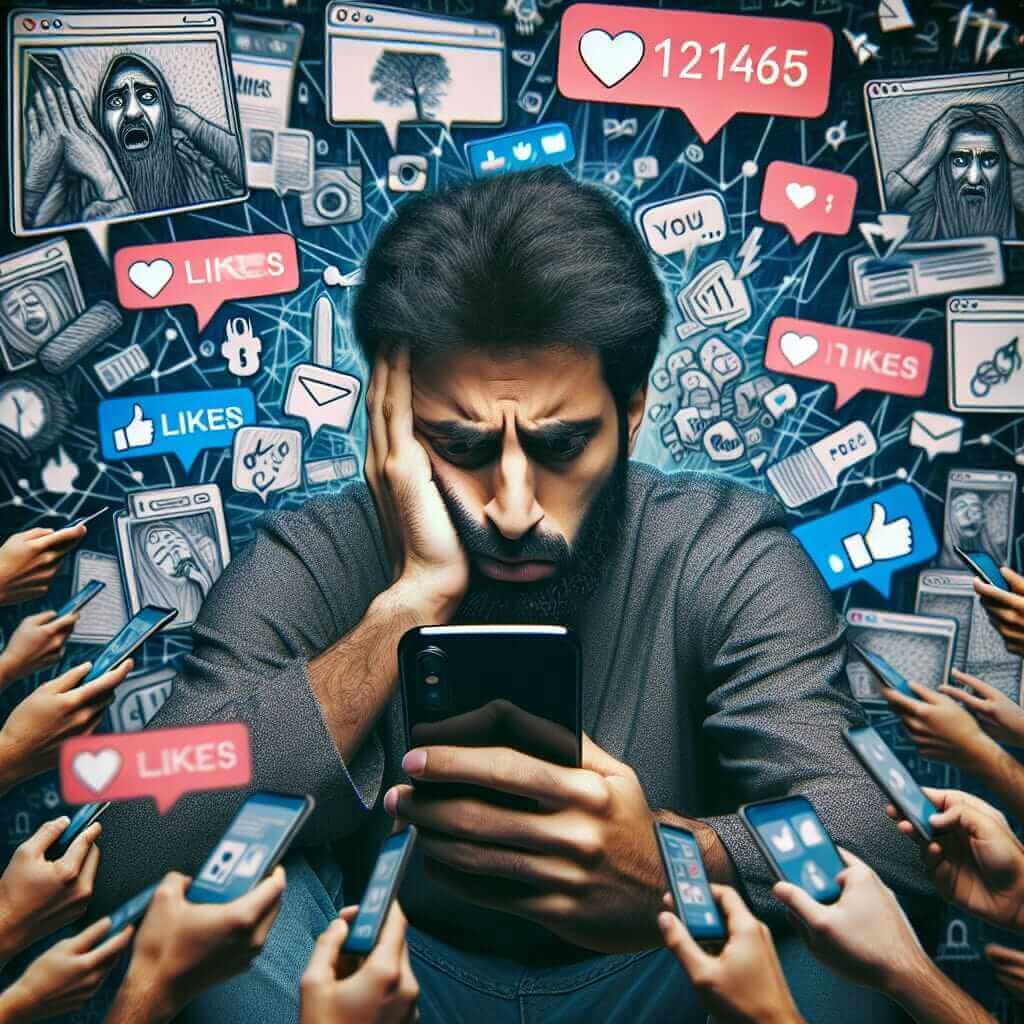The IELTS Reading section evaluates your ability to read and comprehend passages of varying difficulty levels, including factual information, opinionated pieces, and analytical content. One recurring theme in recent years, due to its relevance and widespread impact, is the effect of social media on mental health. This topic has surfaced multiple times, reflecting its significance and potential recurrence in future IELTS exams.
Main Content
Reading Passage: The Effects of Social Media on Mental Health
Format: Medium Text
Reading Passage:
Social media has undeniably transformed the way we communicate, share information, and interact with the world. However, alongside its positive aspects, there are growing concerns about its impact on mental health. Various studies have documented both beneficial and detrimental effects, highlighting the complexity of this issue.
Firstly, social media can provide substantial emotional support through online communities. People experiencing loneliness or social isolation may find comfort in connecting with others who share similar experiences. These connections can foster a sense of belonging and improve overall mental well-being.
However, excessive use of social media is associated with several mental health problems. One of the most notable issues is the development of anxiety and depression, particularly among young adults. The constant comparison to others, the pressure to present a perfect life, and the fear of missing out (FOMO) can lead to feelings of inadequacy and low self-esteem.

Furthermore, cyberbullying remains a significant concern. The anonymous nature of online interactions allows for negative behavior and harassment, which can have severe psychological repercussions. Victims of cyberbullying often experience heightened levels of stress, anxiety, and in some cases, post-traumatic stress disorder (PTSD).
In addition to individual impacts, social media can also affect broader societal dynamics. The spread of misinformation and echo chambers can contribute to polarized communities, exacerbating feelings of hostility and distrust. This environment can further undermine mental health by fostering divisive and contentious interactions.
In conclusion, the effects of social media on mental health are multifaceted and significant. While it offers invaluable support and connectivity, it also presents substantial risks that need to be managed through informed usage and supportive measures.
Questions
Multiple Choice
-
According to the passage, what is one positive effect of social media on mental health?
a. It helps combat cyberbullying.
b. It fosters a sense of belonging.
c. It reduces the amount of misinformation online.
d. It eliminates feelings of FOMO. -
Which of the following is NOT mentioned as a negative impact of social media?
a. Increased feelings of anxiety and depression.
b. Development of PTSD.
c. Improved self-esteem.
d. Experience of cyberbullying.
True/False/Not Given
-
Social media always has a negative impact on people’s mental health.
a. True
b. False
c. Not Given -
Young adults are particularly vulnerable to the mental health issues caused by social media.
a. True
b. False
c. Not Given
Matching Information
Match the following statements (i-iv) with the effects of social media (1-4).
i. Can connect individuals with similar experiences.
ii. Leads to feelings of inadequacy and low self-esteem.
iii. Creates a sense of community belonging.
iv. Contributes to polarized communities.
- Positive emotional support
- Mental health problems
- Broader societal dynamics
Answer Key
Multiple Choice
- b. It fosters a sense of belonging.
- c. Improved self-esteem.
True/False/Not Given
- b. False
- a. True
Matching Information
- i – 1. Positive emotional support
- ii – 2. Mental health problems
- iii – 1. Positive emotional support
- iv – 3. Broader societal dynamics
Common Mistakes
- Over-Generalization: Avoid assuming that all effects of social media are negative or positive. The text mentions both beneficial and harmful impacts.
- Misinterpretation of Keywords: Ensure you understand the specific context in which keywords like “anxiety” and “support” are used.
- Making Assumptions: Stick to the information provided in the text. Don’t bring outside knowledge or assumptions into your answers.
Vocabulary
- Inadequacy (noun) /ɪnˈædɪkwəsi/ – The state of not being sufficient or good enough.
- Cyberbullying (noun) /ˈsaɪbərˌbʊliɪŋ/ – The use of electronic communication to bully a person.
- Polarized (adj) /ˈpoʊləˌraɪzd/ – Divided into sharply opposed groups.
Grammar
Conditional Sentences:
- Type 1 Conditional: If + present simple, will + base verb (Used for real or possible situations).
Example: If you spend too much time on social media, you will feel anxious.
Conclusion
To excel in the IELTS Reading section, practice regularly with diverse topics. Focus on understanding the nuances of each passage and develop strategies to identify key information efficiently. Utilizing authentic materials and engaging with relevant topics, like the effects of social media on mental health, can enhance your proficiency and confidence in tackling real exam questions.
For related reading practices, you can explore these insightful articles on digital addiction’s effects on mental health, the social implications of increased screen time due to remote learning, and more at IELTS.NET.